*This announcement refers to the February 3rd, 2022 deadline. For applicants who submitted applications for ACC's March 31st deadline, an announcement will be released in late summer 2022.
Download PDF >> "2022 ACC Japan Grant Program Grants Announcement"
Founded in 1963, the Asian Cultural Council advances international dialogue, understanding, and respect through cultural exchange activities in Asia and the United States to create a more harmonious and peaceful world. This mission is accomplished through fellowships and other programs that support individual artists, scholars, and arts professionals.
We are pleased to announce the selection of the 2022 ACC Japan Grant Program, as listed below. Starting this year, we are also publishing the names of panelists as well as comments from representative panelists of each field.
2022 ACC Japan Grant Program Panelists
Visual Art Panelists
*Eriko Kimura (Senior Curator, Yokohama Museum of Art)
Che Kyongfa (Curator, Museum of Contemporary Art Tokyo)
Tsuyoshi Ozawa (Artist / ACC 1996 Grantee)
Performing Arts Panelists
*Hiroyuki Takahashi (Theater Critic / ACC 2012 Grantee)
Shinji Ono (Director, Yokohama Red Brick Warehouse Number 1)
*Representative panelists for each field.
In addition to the above panelists, we received assistance from the following professionals during the 2022 grant selection process.
Mamoru Fujieda (Composer / ACC 1984 Grantee)
Inuhiko Yomota (Film historian, comparative culturist, author / ACC 1986 Grantee)
2022 ACC Japan Grant Program
Fellowships and Grants
◆ New York Fellowship (6 months in NY, US) ◆
 Yuta Hagiwara
Yuta Hagiwara
Performing Arts (Theater)
To conduct research on “Democracy's Body,” which supported the trend of alternative theater in New York City after WWII.
ACC Saison Foundation Fellow *
Photo: Rakutaro Ogiwara
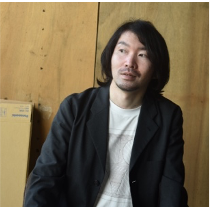 Haruchi Osaki
Haruchi Osaki
Visual Art
To conduct interdisciplinary research on the historical context of disability and culture and contemporary inclusive cultural forms, as well as research on new communication models and environments of post-Covid physical expression and experiential and participatory forms.
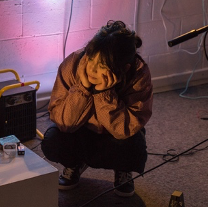 Elico Suzuki (suzueri)
Elico Suzuki (suzueri)
Visual Art
To conduct research mainly on the history of DIY/hacking/circuit-bending instruments in Media/Sound art, based on the works of Sonic Arts Union in the US, and the influence of global Maker movements.
Photo: Benedict Phillips
◆ Individual Fellowship ◆
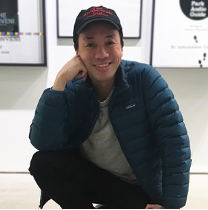 Sho Akita
Sho Akita
Visual Art (Curation)
A 2-month Individual Fellowship to continue research on the late Japanese artist and ACC grantee Teiji Furuhashi’s time in New York.
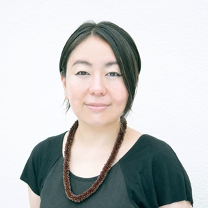 Ai Iwane
Ai Iwane
Visual Art (Film/Video/Photography)
A 2-month Individual Fellowship to conduct field research on the salmon and community culture of the Pacific Rim and to observe ecological art practices on the West Coast of North America.
Photo: Shinya Ito
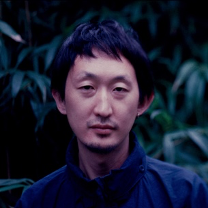 Arata Mori
Arata Mori
Visual Art (Film/Video/Photography)
A 2-month Individual Fellowship to conduct field research on the revival of spiritual mediumship in Thailand, especially through interacting with and taking lessons from the LGBT community of mediums.
Photo: Julien Cott
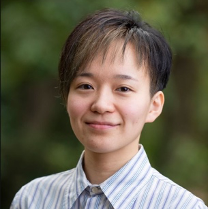 Maho Watanabe
Maho Watanabe
Performing Arts (Theater)
A 2-month Individual Fellowship to travel to Vietnam and Indonesia to meet and research with colleagues of "TERASIA - Theatre for Traveling in the Age of Isolation," a long-term project that tries to understand modern beliefs and views of life and death in various parts of Asia.
ACC Saison Foundation Fellow *
Photo: Toshiki Yamahata
◆ Grants to Institutions ◆
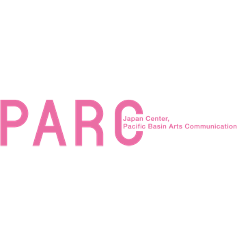 Japan Center, Pacific Basin Arts Communication (PARC)
Japan Center, Pacific Basin Arts Communication (PARC)
Performing Arts (Dance, Theater)
To provide support for a project in which Beijing-based choreographer Yang Zhen explores the contemporary conditions of Chinese identities and local identities through collaboration with families from various backgrounds who live in Chinatowns around the world.
ACC Saison Foundation Fellow *
* The ACC Saison Foundation Fellow is awarded to individuals/institutions supported by a designated grant from the Saison Foundation.
Comments from Panelists
Visual Art
ACC grants in the visual arts have been steadily provided to artists with important career advancement opportunities. In many cases, I recognize that the program has targeted artists who are seeking their next steps after a start-up period of recognition and attention in Japan and to artists who are looking to expand their practice internationally.
Currently, the world is under very special circumstances brought by the spread of Covid-19 over the past two years, and even in the art world, opportunities for invitations from abroad and exhibitions have been greatly reduced. Difficult times have continued for artists, for whom meeting new people, visiting new places, and gaining diverse experiences remain important.
As a natural response to this situation, it seemed to me that among the Japanese panelists, including myself, more emphasis than ever was placed on reading applications that highlighted why the applicants would choose now to seek research and residency opportunities in New York, the U.S., or other parts of Asia.
As a result, the five artists selected are relatively more experienced in their careers than in previous years. Haruchi Osaki, who has practiced psychopathology and the relationship between disability and the arts in his own practice; Suzueri, a sound artist with extensive experience in the experimental music scene; and Ai Iwane, who has done fieldwork deeply related to the land as a photographer. We are confident that they will be able to proceed with their activities in New York and on the West Coast, backed by their achievements and experience. Sho Akita, a curator, also seeks to research exchange in queer culture in the U.S. and Japan, starting with late Teiji Furuhashi, a cosmopolitan artist from Japan in the 1990s. Akita's research will no doubt benefit from the ACC network. Filmmaker Arata Mori, who has chosen to work in Thailand, the only non-U.S. country among this year's visual art grantees, was a topic of discussion during the selection process. His research project will not be easy, given the feasibility of entering and staying in Thailand and the possibility of smoothly conducting interviews there, and especially considering the special approach of the subject of the interviews, an LGBT spiritual medium. Nevertheless, given Mori's experience in the field of news reporting in conflict zones, we expect that he will be able to forge his own path even in the midst of difficult circumstances.
Finally, many of the applications were regrettably not selected this year. However, under the current circumstances, they could have been further researched and given additional advance thought. It might have been better for some applicants to wait for an opportunity instead of rushing the timing. Not being selected this year does not mean that an application will be denied in the future. We hope that each of them will pursue what they can do now and try again next year and the year after.
Eriko Kimura
Senior Curator, Yokohama Museum of Art
Representative Panelist (Visual Art)
Performing Arts
The door is open to everyone, and of course, anyone could have gotten a fellowship. If I had to comment, the trend in this year’s application cycle was that all applicants were outstanding. Not only did they have the background and experience, but they also had the ambition to open the way to the future. That is why we were so thoughtful about the timing of their fellowship.
Sometimes, applying for an ACC fellowship is a matter of being fully prepared, and at other times it is a matter of taking a chance on the possibilities that lie ahead. Sometimes, applicants have a mature career and want to move on to the next stage. How will the support of ACC resonate with the various timings of each individual's career? This was the most important consideration during the selection process.
Through the screening process, it seemed to me that Yuta Hagiwara is at a point in his career when he would be taking a "fatal leap," so to speak, not only within his past activities but also in the future and further development of his own creative activities. Of course, it would be a "fatal leap," as Marx would say. As artists, they must make a leap between the value they already have and the value they will gain from their new experience. In other words, they should try to jump from one cliff to another. I believe that Hagiwara’s career has reached such a point.
Maho Watanabe's activities embody the "Asia" mission of ACC, encompassing the Middle East and Southeast Asia, which is West Asia, to East Asia, and vice versa. It would be expected that she would use the experience she gains from this fellowship to expand her projects and activities across the vastness of Asia in even greater and better ways in the future.
Pacific Basin Arts Communication (PARC), centering on YPAM, has been actively engaged in activities in Southeast and East Asia for the past several years since the days of its predecessor, TPAM. The projects that have been carried out and the ideas that have been fostered through these activities are indeed significant, even while international exchange between Japan and the rest of Asia is politically charged. We have seen both thriving times and declining times. In fact, the future outlook is not optimistic. However, to consider culture only as a means to an end is more or less cultural imperialism. PARC's activities, on the other hand, remind us that strength lies in the will to persist, even in difficult times. At least, that is what we dream of believing.
Finally, this is a word of caution to myself. Although I was involved in the screening process this time, I had been one of the applicants some ten or so years ago. In retrospect, I can only say that it was fortunate that I became an ACC fellow then. At the very least, if I had been in a situation like this year’s review, I would not have been able to grant my own application. However, by chance, I became a fellow, and during my stay, I met a diverse group of artists from other parts of Asia, who were from different genres of the arts. It was a great experience, and I made some irreplaceable friends who have kept in touch.
My comments may sound presumptuous, but I would like to encourage the fellows to enjoy their time as a fellow as much as they can. Enjoying themselves is also an important part of the experience.
Hiroyuki Takahashi
Theater Critic / ACC 2012 Grantee
Representative Panelist (Performing Arts)
Supported by:
The Saison Foundation
Association for Corporate Support of the Arts


Asian Cultural Council Japan Foundation
Kyobashi Yamamoto Bldg. 4F,
3-12-7 Kyobashi, Chuo-ku, Tokyo 104-0031 Japan
Email: acc@accjpn.org
Tel: 03-3535-0287 Fax: 03-3535-5565
www.asianculturalcouncil.org
 ACC New York
ACC New York